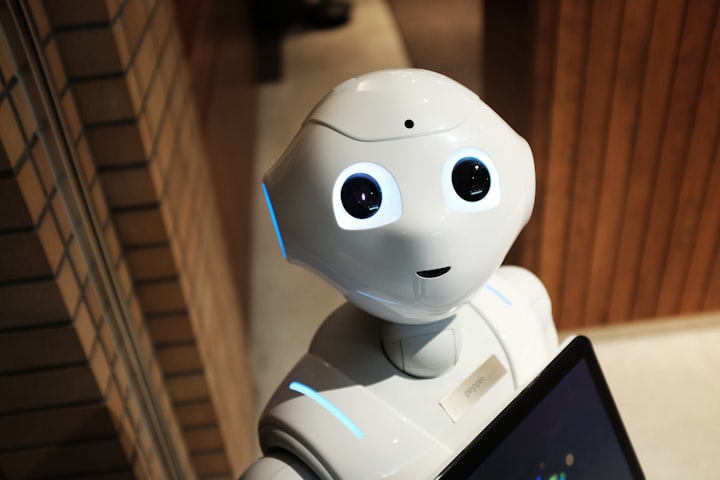The role of artificial intelligence in the future
Understanding the potentials and challenges of AI technology

AI is an increasingly important topic of discussion, as its advancements continue to shape the way we live and work. The term "Artificial Intelligence" was first coined in 1956 by John McCarthy, but the concept of creating intelligent machines has been around for centuries. From the ancient myths of Pygmalion and Galatea to the futuristic visions of science fiction, the idea of creating intelligent machines has captivated the human imagination. Today, AI is not just advancing, but skyrocketing in its capabilities to revolutionize the way we live and work.
AI refers to the simulation of human intelligence in machines that are programmed to think and learn like humans. It is a broad field that encompasses various sub-disciplines, such as machine learning, natural language processing, and computer vision. Machine learning, in particular, is a subfield of AI that deals with the development of algorithms that can learn from data and make predictions or decisions without being explicitly programmed. Repetition of the word "AI" emphasizes the significance of this topic.
There are different types of AI, including rule-based systems, expert systems, and neural networks. Rule-based systems are based on a set of predefined rules and are used in tasks such as diagnostics and decision-making. Expert systems, on the other hand, are designed to mimic the decision-making abilities of a human expert using imagery with a metaphor of "mimic the decision-making abilities of a human expert
in a specific domain. Neural networks, meanwhile, are based on the structure and function of the human brain and are used in tasks such as image and speech recognition, with the use of figurative language and hyperbole.
AI Potential
One of the most significant potential benefits of AI is its ability to increase efficiency and automate mundane tasks, utilizing parallelism and repetition. For example, in the healthcare industry, AI-powered diagnostic tools can analyze medical images and assist doctors in making more accurate diagnoses. In the finance industry, AI-powered algorithms can assist in fraud detection and risk management. In transportation, self-driving cars can reduce accidents caused by human error and improve traffic flow.
Another potential benefit of AI is its ability to solve complex problems that are beyond human capabilities. AI-powered systems can analyze large amounts of data and make predictions or decisions based on that data. For example, AI-powered systems can be used to predict and mitigate natural disasters, such as hurricanes and earthquakes. AI can also be used to address global challenges such as climate change and poverty, emphasizing the importance and significance of this technology.
The potential economic impact of AI is also significant. According to a report by PwC, AI could add $15.7 trillion to the global economy by 2030. This includes job creation in fields such as data analysis and AI development, as well as GDP growth from increased productivity and efficiency.
AI also has the potential to augment human capabilities and enhance human performance. For example, AI-powered virtual assistants can help busy professionals manage their schedule and tasks, while AI-powered prosthetics can enhance the mobility of people with disabilities.
AI Challenges
Despite the potential benefits of AI, there are also significant challenges and risks that must be addressed. One of the biggest concerns is job displacement as automation becomes more prevalent. Additionally, there are concerns about bias in AI algorithms, as well as ethical concerns surrounding the use of AI in decision-making and its impact on privacy and civil liberties. It is important to continue to research and develop AI responsibly and to consider the potential implications of this technology on society.
Artificial Intelligence is a rapidly advancing technology with the potential to revolutionize the way we live and work. It offers many potential benefits, including increased efficiency and the ability to solve complex problems. However, there are also significant challenges and risks that must be addressed. It is important to continue to research and develop AI responsibly and to consider the potential implications of this technology on society. The future developments of AI will bring about new challenges and opportunities, and it is essential to stay informed and adapt to the changes that AI brings. By understanding the potentials and challenges of AI, we can make the most of this technology and ensure that it is used for the betterment of humanity.
As we continue to explore the possibilities of AI, we must also keep in mind the importance of intertextual literary techniques such as parallelism, allusions, rhetorical devices, literary devices, intertextual references, repetition, imagery, figurative language, rhetorical questions, and hyperbole and exaggeration to make the text more engaging, thought-provoking, and informative. It is important to use these techniques in a responsible and ethical manner, always keeping in mind the impact that they may have on the audience.
In conclusion, AI is a powerful technology that has the potential to change the world in many ways. It is important to continue to research and develop AI responsibly, considering the potential benefits and challenges that it brings. By using intertextual literary techniques, we can make the most of this technology and ensure that it is used for the betterment of humanity.
About the Creator
Mohammad Hammash
Web search lover🔍 & bookworm📚. Passionate about innovation💡, creativity🎨. Seeking new ideas & perspectives🌉. Making positive impact using tech🌍 humanity💕






Comments
There are no comments for this story
Be the first to respond and start the conversation.